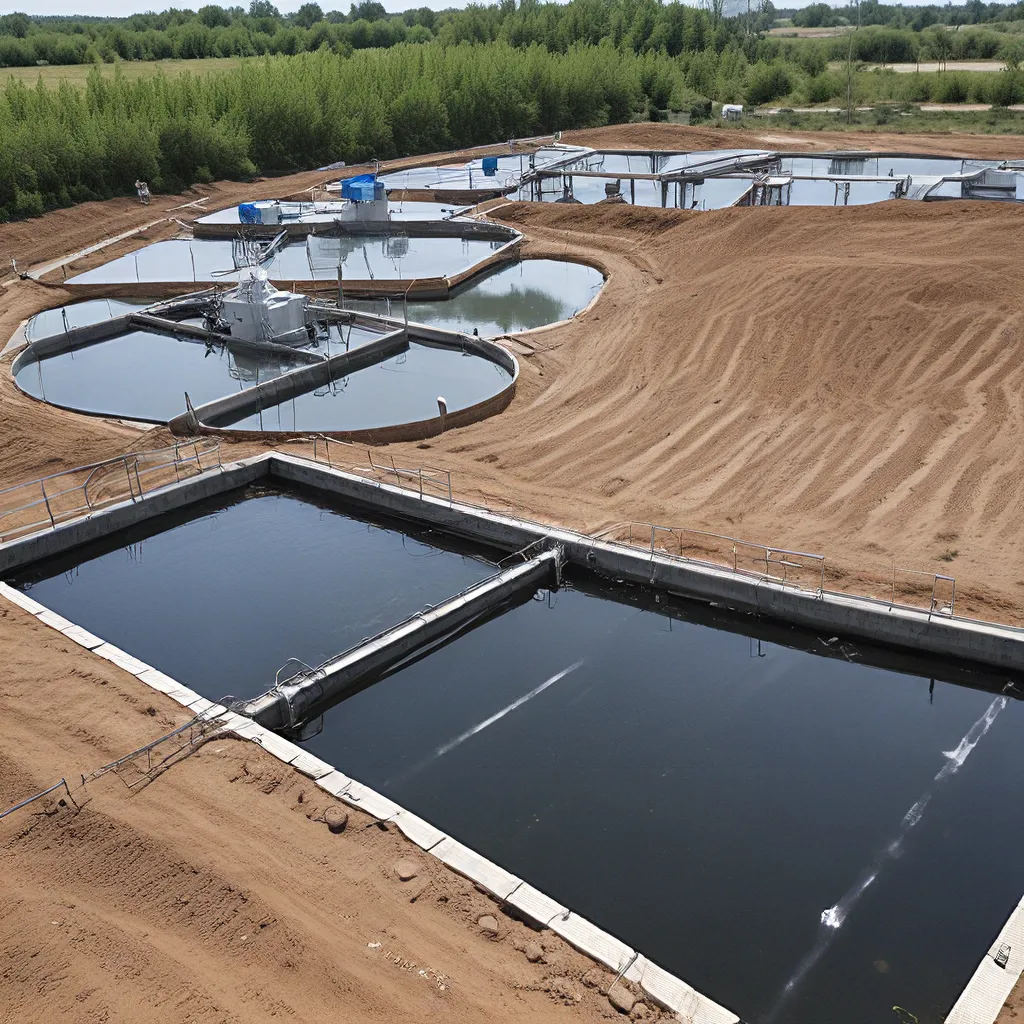
As an environmental enthusiast, I’ve always been captivated by the intersection of technology and sustainability. And when it comes to wastewater treatment, the potential for renewable energy integration is truly exciting. It’s a field that’s rife with innovation, and I’m eager to dive in and explore how we can leverage clean power sources to create a more efficient and eco-friendly future.
The Challenges of Wastewater Treatment
Let’s start by acknowledging the sheer scale and complexity of wastewater treatment. Municipalities and industrial facilities worldwide are tasked with processing billions of gallons of used water each day, removing contaminants and ensuring safe discharge back into the environment. It’s a relentless, energy-intensive process that requires sophisticated infrastructure and constant vigilance.
Traditionally, most wastewater treatment plants have relied heavily on fossil fuels to power their operations – from the energy-hungry pumps and aeration systems to the various treatment processes. This not only contributes to our collective carbon footprint but also exposes these facilities to the volatility of energy markets and the rising costs of conventional energy sources.
The Renewable Energy Revolution
But what if we could harness the power of renewable energy to transform the wastewater industry? Solar, wind, and hydropower are already making their mark in the energy landscape, and their potential for wastewater treatment is truly exciting.
Recent studies have shown that integrating renewable energy into wastewater treatment can lead to significant cost savings and reduced greenhouse gas emissions. By leveraging the abundant and free energy sources nature provides, these facilities can become more self-sufficient, resilient, and environmentally responsible.
One particularly innovative approach is the use of anaerobic digestion, where microorganisms break down organic matter in the absence of oxygen, producing biogas that can be captured and used to generate electricity or heat. Researchers have found that this process can not only meet the energy needs of a wastewater treatment plant but can even result in a net energy surplus, which can then be fed back into the local grid.
The Future of Sustainable Wastewater Treatment
As exciting as these innovations are, the journey toward sustainable wastewater treatment doesn’t stop there. Experts are constantly exploring new ways to optimize energy efficiency, minimize waste, and enhance the circular economy principles that are so crucial for a truly sustainable future.
For example, some facilities are experimenting with co-digestion, where they combine organic waste from various sources, such as agricultural and food processing waste, to boost biogas production and maximize the renewable energy output. Others are exploring the potential of microbial fuel cells, which use microorganisms to generate electricity directly from wastewater – a promising technology that could revolutionize the way we power our treatment plants.
And let’s not forget the role of energy storage technologies, which can help smooth out the intermittency of renewable sources and ensure a consistent, reliable energy supply for these critical facilities. Battery systems, thermal storage, and even hydrogen production are all being explored as ways to create a more resilient and adaptable wastewater treatment infrastructure.
Embracing the Future, Together
As I reflect on the incredible progress being made in this field, I can’t help but feel a sense of optimism and excitement. The integration of renewable energy into wastewater treatment is not just a technical challenge – it’s a societal and environmental imperative. By reducing our reliance on fossil fuels, we can mitigate climate change, conserve natural resources, and create a more sustainable future for generations to come.
Of course, this journey is not without its challenges. There are still technical hurdles to overcome, regulatory barriers to navigate, and financial considerations to weigh. But I firmly believe that by working together – engineers, policymakers, and concerned citizens like myself – we can overcome these obstacles and transform the way we manage our most precious resource: water.
So, if you’re like me and you’re passionate about the intersection of technology, sustainability, and environmental stewardship, I encourage you to explore the world of renewable energy-powered wastewater treatment. Visit Alpha Wastewater to learn more about the cutting-edge solutions and services they offer, and join me in shaping a cleaner, greener future for our communities and our planet.